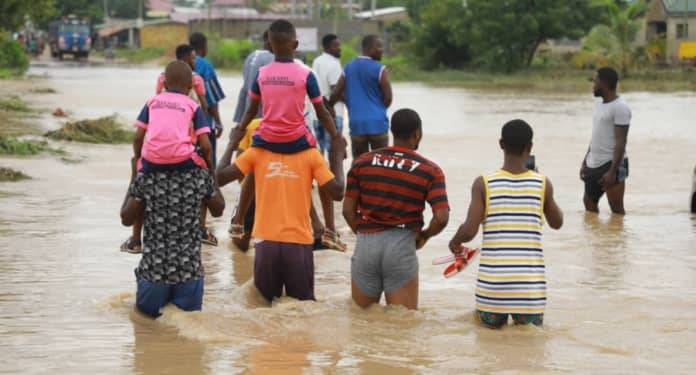The Flooding Crisis in Accra: Causes, Consequences, and Responses
In recent years, Accra, the capital city of Ghana, has experienced devastating floods that have highlighted the vulnerabilities of urban infrastructure in the face of climate change and rapid urbanization. The most notable flooding events, particularly those occurring during the rainy seasons, have caused significant damage, displacement, and loss of life, sparking urgent discussions about urban planning and disaster management.
Causes of the Flooding
Several factors contribute to the recurrent flooding in Accra. First and foremost is the city's inadequate drainage system. Much of Accra's infrastructure was developed without comprehensive planning, leading to poorly designed drainage channels that are often clogged with waste and debris. During heavy rains, these systems cannot handle the volume of water, resulting in significant overflows.
Additionally, the rapid urbanization of Accra exacerbates the flooding problem. As the city expands, green spaces are replaced with concrete structures, reducing the land's natural ability to absorb rainfall. This urban sprawl has been driven by an influx of people from rural areas seeking better economic opportunities, further straining existing resources and infrastructure.
Climate change is another critical factor. Increasingly erratic weather patterns, characterized by intense rainfall and prolonged dry spells, have made it difficult for urban planners to anticipate and manage flood risks effectively. In recent years, the city has witnessed extreme weather events that have overwhelmed its drainage systems and caused widespread flooding.
Consequences of the Flooding
The consequences of flooding in Accra are far-reaching. One of the most immediate impacts is the loss of life and injuries to residents. Floodwaters often sweep through neighborhoods without warning, leading to tragic accidents and fatalities. In addition to the human toll, flooding results in extensive property damage. Homes, businesses, and critical infrastructure such as roads and bridges suffer from severe water damage, leading to costly repairs and economic losses.
Displacement is another significant consequence. Many families are forced to evacuate their homes during flooding, leading to temporary shelter situations that can last for weeks or even months. This displacement disrupts lives, education, and livelihoods, further entrenching poverty in affected communities.
The health implications are also profound. Standing water can become a breeding ground for mosquitoes, increasing the risk of malaria and other waterborne diseases. Moreover, contaminated floodwaters can lead to outbreaks of cholera and other gastrointestinal diseases, posing a serious public health threat.
Responses to the Flooding
In response to these challenges, the government and various stakeholders have initiated several measures to address the flooding crisis. One of the primary strategies has been the improvement of drainage infrastructure. Recent projects aim to expand and rehabilitate existing drainage systems, including the construction of new channels to better manage stormwater.
Community education and engagement are also crucial components of the response strategy. Awareness campaigns focus on the importance of proper waste disposal and the role of communities in maintaining drainage systems. Local governments are working with residents to create a culture of responsibility regarding environmental maintenance.
In the long term, urban planning must incorporate climate resilience. This includes integrating green spaces, promoting sustainable land use practices, and considering the impacts of climate change in development plans. The use of technology, such as flood prediction models, can help authorities prepare for and respond more effectively to future flooding events.
Conclusion
The flooding crisis in Accra underscores the urgent need for comprehensive urban planning and disaster management strategies. As climate change continues to pose significant threats to urban centers, proactive measures are essential to safeguard lives and property. By investing in infrastructure, engaging communities, and promoting sustainable practices, Accra can work towards a more resilient future, minimizing the impact of flooding on its residents.




No comments yet
Be the first to share your thoughts!